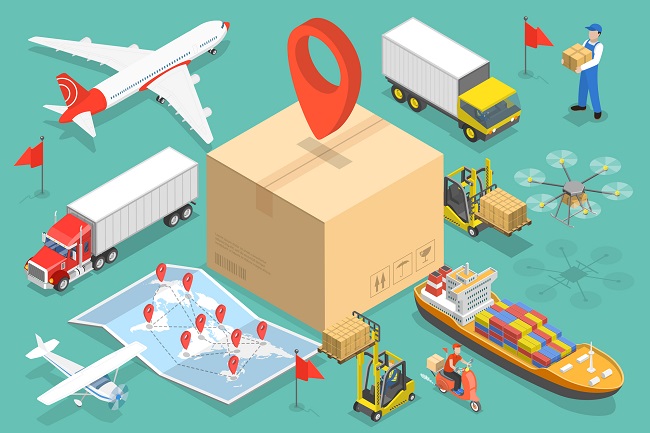In the rapidly growing logistics and transportation industry, intermodal services have been a revolutionary game-changer. As businesses continue to expand into global markets, there is an urgent need for reliable and cost-effective transportation solutions. Intermodal services present a viable option, providing smooth connections between various forms of transport to ensure goods are delivered promptly and safely. Here, we investigate the world of intermodal services delving into their different types, advantages, and why they have become a vital component of contemporary supply chains.
Intermodal services refer to the integration of multiple transportation modes, such as trucks, trains, ships, and planes, to transport goods from their origin to their final destination. This combination of various modes ensures that cargo can traverse long distances swiftly and efficiently, overcoming geographical barriers that could otherwise hinder traditional transportation methods.
Contents
Types of Intermodal Services
Rail and Truck Intermodal Services:
Rail and truck intermodal services, also known as piggyback services, are among the most popular choices for transporting goods over long distances. This type of service combines the efficiency of rail transport for long-haul segments with the flexibility of trucking for last-mile delivery. By seamlessly transferring cargo containers between trains and trucks, this approach optimizes logistics, reducing transit times and costs while enhancing reliability.
Ocean and Rail Intermodal Services:
For businesses engaged in international trade, ocean, and rail intermodal services offer a powerful solution for moving goods between continents efficiently. Container ships are utilized for overseas transportation, arriving at major ports where cargo is then transferred to trains for inland distribution. This integration ensures a smooth transition from sea to land, providing a cost-effective and reliable option for global supply chains. Rail-sea intermodal services have gained traction due to their ability to optimize global supply chains and reduce the overall transportation time for goods traveling across continents.
Air and Truck Intermodal Services:
Time-sensitive industries like perishables, medical supplies, and high-value items require air and truck intermodal services to meet their rapid delivery demands. By unifying air freights for distant shipments with local trucking for local delivery, businesses can create optimal logistical solutions that satisfy time constraints. This flexible approach allows customers to benefit from guaranteed prompt transportation.
Warehousing and Distribution Services:
The success of any supply chain hinges upon efficient warehousing and distribution services. Streamlining inventory management and providing timely goods to customers require effective storage and swift distribution solutions.
Customs Brokerage Services:
Navigating the complexities of customs regulations can be daunting, especially for businesses engaged in international trade. Customs brokerage services facilitate the smooth movement of goods across borders by ensuring compliance with relevant laws and regulations.
Freight Forwarding Services:
Freight Forwarding: Exert freight forwarders expertly coordinate the transportation of goods, delivering them from point A to point B. They orchestrate the entire logistics procedure; from reserving cargo space, organizing transport, and managing documentation. Through a comprehensive partner and carrier network, you can discover optimized routes and acquire budget-friendly solutions fitting your shipping needs.
Specialized Cargo Handling Services:
To ensure the timely and safe transport of oversized machinery, hazardous materials, and fragile artworks, specialized cargo handling services are essential. These organizations provide the relevant expertise along with the necessary equipment, abiding by stringent safety regulations to guarantee the successful delivery of special cargo.
Technology-Driven Tracking and Visibility:
By employing advanced technology, provides optimal tracking solutions to allow clients to monitor their cargo’s journey from beginning to end. This visibility increases efficiency, reduces breakdowns, and instills trust between an organization and esteemed customers during these uncertain times. Real-time tracking and visibility of shipments are essential components of successful supply chain management, ensuring the utmost success for all involved.
The Role of Intermodal Services in Modern Supply Chains
In this era of globalization, supply chains have become intricate and changeable, necessitating advanced logistics solutions. Intermodal services profoundly contribute to modern-day supply chain management by furnishing the connectivity needed to enhance goods’ transit across extended stretches. Whether it be streamlining cross-border trade, ensuring on-time deliveries, or reducing environmental detriment, intermodal services provide a comprehensive solution to fulfilling varying corporate demands.
As businesses strive for competitiveness and efficiency, embracing intermodal services has become a strategic imperative. To unlock the full potential of these services, companies need to collaborate with experienced logistics partners capable of orchestrating seamless intermodal operations. By doing so, businesses can achieve cost savings, improve their environmental stewardship, and gain a competitive advantage in the global marketplace.
Remember, the key to leveraging intermodal services effectively lies in collaborating with trusted and experienced logistics partners who can tailor solutions to specific business needs. So, as you embark on your journey to streamline your supply chain and achieve unparalleled success, consider the transformative power of intermodal services and go to MX Solutions website.

